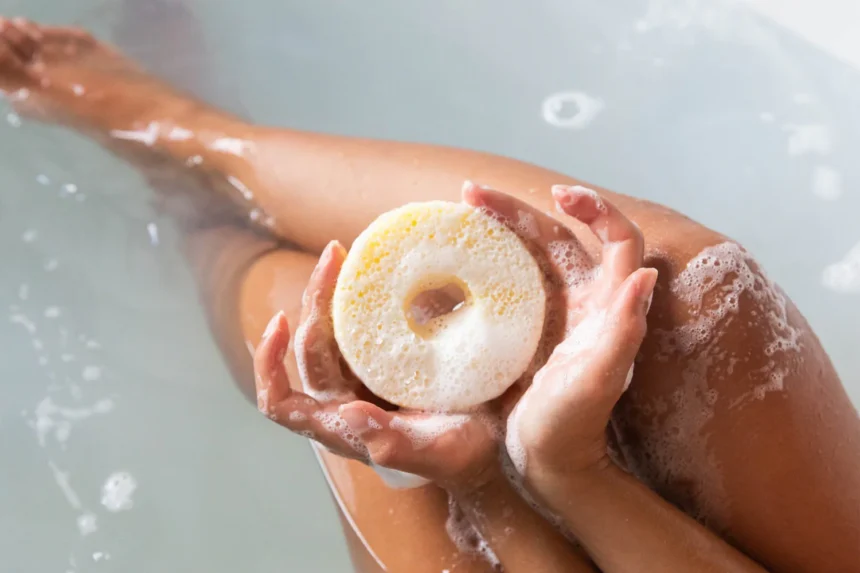Bath products have become essential items in households worldwide, not only serving hygienic purposes but also enhancing personal care and relaxation routines. With the growing demand for high-quality, eco-friendly, and luxurious bath items, manufacturers like Cunke are playing a crucial role in shaping the bath and beauty industry. This article delves into the role of bath product manufacturer, their focus on innovation, the rising trends in bath products, and the impact of sustainability.
The Role of Bath Product Manufacturers
Bath product manufacturers are the backbone of the bath and beauty industry, supplying both retailers and consumers with a wide range of products such as bath bombs, soaps, scrubs, shower gels, lotions, and bath accessories. These manufacturers are responsible for product development, quality control, and meeting the demands of ever-changing consumer preferences.
Manufacturers like Cunke, a leading Chinese wholesale bath product producer, are continuously innovating to stay ahead in a competitive market. Their role goes beyond just producing bath items; they also focus on packaging, branding, and catering to specific markets, such as luxury, eco-friendly, or budget-friendly products. To succeed, bath product manufacturers need to balance quality, affordability, and the ability to meet large-scale production demands without compromising on safety and effectiveness.
Key Components of Bath Products
Bath products are made from a variety of ingredients, with each component serving a specific purpose. Whether a bath bomb is meant to fizz and create a relaxing ambiance or a shower gel is intended to moisturize and cleanse, the ingredients matter. Let’s explore the common components used by manufacturers:
- Essential Oils: These oils are extracted from plants and flowers and are commonly used for their therapeutic benefits. Lavender oil, for instance, is known for its calming properties, while peppermint oil invigorates the senses. Essential oils also enhance the fragrance of bath products.
- Butters and Oils: Shea butter, cocoa butter, coconut oil, and almond oil are frequently used to provide moisture and nourishment to the skin. These ingredients are rich in vitamins and fatty acids, making them perfect for hydrating the skin.
- Natural Exfoliants: Many bath scrubs and soaps contain exfoliants like sugar, sea salt, or oatmeal, which help remove dead skin cells and leave the skin feeling soft and smooth.
- Colors and Scents: To make bath products visually appealing, manufacturers often add natural or synthetic colorants. Scents are another vital factor, with bath products featuring a wide range of fragrances, from fruity to floral and earthy tones.
Innovation in Bath Product Manufacturing
Innovation is at the heart of what keeps bath product manufacturers thriving. Consumers are always looking for new and exciting ways to elevate their bath experience, and manufacturers need to keep up with these expectations.
- DIY Bath Kits: One trend that has taken the market by storm is the introduction of DIY bath bomb kits. These kits allow consumers to make their own bath bombs at home, giving them control over the ingredients and fragrances used. Cunke, among other manufacturers, has tapped into this trend, offering customizable bath product kits to meet the demand for personalized beauty solutions.
- Eco-Friendly Packaging: With the world becoming more environmentally conscious, bath product manufacturers are shifting towards eco-friendly packaging options. Consumers today prefer products that come in recyclable, biodegradable, or even plastic-free packaging. Manufacturers are developing sustainable packaging solutions without compromising on aesthetics or functionality.
- Natural and Organic Formulas: The rise in consumer demand for natural and organic products has pushed manufacturers to develop formulations that use organic, cruelty-free, and vegan ingredients. Many are also removing harmful chemicals like sulfates, parabens, and artificial fragrances from their products to create cleaner, safer alternatives.
Trends in the Bath Product Industry
The bath product industry is always evolving with new trends emerging every year. These trends often stem from consumer preferences, technological advancements, and social movements like sustainability and self-care. Here are some of the most notable trends in 2024:
- Luxury Bath Items: There has been a growing interest in luxury bath products, especially those that create a spa-like experience at home. Items like gold-infused bath salts, silk body scrubs, and luxurious bath oils have found their way into many homes. These products focus on indulgence and self-care, making bath time an experience to savor.
- CBD Bath Products: Cannabidiol (CBD) has become a popular ingredient in bath products due to its calming and anti-inflammatory properties. CBD-infused bath bombs and oils are becoming mainstream, offering relaxation and skin benefits. Manufacturers have capitalized on the wellness trend by incorporating CBD into their bath lines.
- Waterless Products: In an effort to reduce water consumption and waste, some manufacturers are developing waterless bath products. These products come in the form of bars, powders, or tablets, reducing the need for plastic packaging and lowering the environmental footprint of the manufacturing process.
The Benefits of Eco-Friendly Bath Products
As consumers become more eco-conscious, bath product manufacturers have taken steps to develop environmentally friendly options. Eco-friendly bath products are designed to minimize their impact on the environment, and the benefits extend far beyond just being sustainable.
- Reduced Chemical Use: Many eco-friendly bath products are made without harsh chemicals like parabens, sulfates, and synthetic dyes. These chemicals can be harmful not only to the skin but also to the environment when washed down the drain.
- Sustainable Ingredients: Manufacturers use ingredients that are responsibly sourced, such as organic oils, fair-trade butters, and sustainably harvested botanicals. These sustainable practices help protect ecosystems and ensure that natural resources are not depleted.
- Biodegradable Packaging: With a focus on reducing waste, many manufacturers are using biodegradable or compostable packaging materials. This helps cut down on the plastic waste that ends up in landfills and oceans, making the products more environmentally friendly from start to finish.
- Cruelty-Free and Vegan Options: More consumers are opting for bath products that are not tested on animals and are free from animal-derived ingredients. Bath product manufacturers are responding to this demand by offering cruelty-free and vegan options, which align with ethical consumer values.
The Future of Bath Product Manufacturing
The future of bath product manufacturing looks promising as it continues to evolve alongside consumer needs. Customization, sustainability, and innovation are expected to be the driving forces in the years ahead. Here are some potential future trends in the industry:
- Personalized Bath Products: The demand for personalized products is likely to grow, with more manufacturers offering bespoke services. From custom scents to tailored skin benefits, bath product manufacturers will provide more personalized options to cater to individual preferences.
- Tech-Infused Bath Products: As technology continues to influence the beauty industry, bath product manufacturers may start incorporating tech elements into their products. For instance, smart bath bombs that change color or temperature based on water conditions, or bath products with built-in sensors to track skincare needs, could be the future of bath time.
- Sustainability as a Standard: Sustainability is no longer a niche concern—it is becoming a standard across all industries. Bath product manufacturers will likely continue to prioritize eco-friendly practices, from sourcing sustainable ingredients to using green energy in production facilities.
Conclusion
Bath product manufacturers like Cunke are instrumental in shaping the bath and beauty industry by producing innovative, high-quality products that meet the diverse needs of consumers. As trends evolve and sustainability becomes a central focus, manufacturers are adapting their practices to stay relevant in an ever-changing market. With an emphasis on luxury, eco-friendliness, and personalization, the future of bath products promises to be exciting, innovative, and full of potential.
By paying attention to consumer demands, embracing new trends, and committing to environmentally conscious practices, bath product manufacturers can continue to thrive in this competitive industry.







